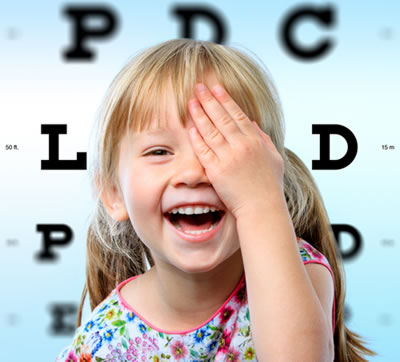Kids
Good vision in your child is vital to ensure normal learning and development at school. In children the wiring between the brain and the eyes develops from birth till about 7 years old. During this time it is vital that any vision problems are corrected, otherwise the eyes may fail to develop normally resulting in a permanent vision loss in an eye. Routine eye examinations will not only will detect vision problems, but also screen for abnormalities that if left untreated or undetected can lead to loss of vision. Common kids vision problems
Contact lensesYes it is possible for children to wear contact lenses, they do however carry some risks and need to be treated responsibly. As a parent you will have a good feel for whether or not your child is ready to handle this. A good option for younger children are daily disposables as these do not require cleaning minimising the risk of problems. Children as young as seven have been fitted in orthok lenses and bifocal contact lenses for myopia control (see box). Myopia controlCan you stop short sight getting worse?New research has shown that it is now possible to slow down the rate at which short sight will progress and in some cases stop it worsening altogether. Family history of short sight is a strong indicator that a child may also develop the same condition. The two best methods to control short sight we have found are orthok (night-time contact lenses) and bifocal soft contact lenses. Orthok has the added advantage of complete freedom from any glasses or contact lenses during the day. |
| Highbury Optometrists Ltd | 52 Mokoia Road Birkenhead Auckland | Ph 418 1347 | Email shop @ highburyeye.co.nz | highburyeye.co.nz |
